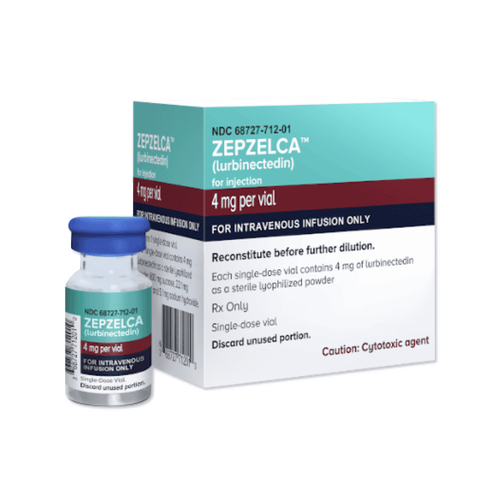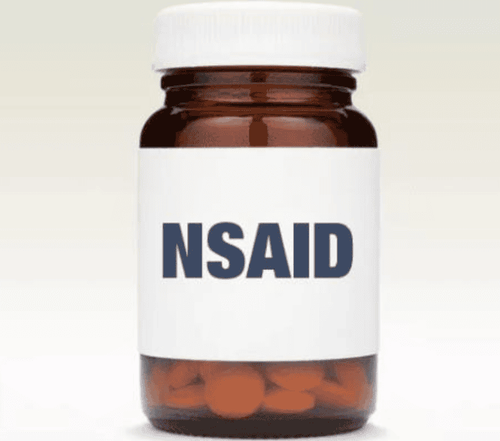This is an automatically translated article.
Oxycodone/Aspirin medicine contains 2 types of pain relievers Oxycodone and Aspirin. Oxycodone is an opioid or narcotic pain reliever that works on certain parts of the brain to relieve pain. Aspirin is known as a salicylate and a non-steroidal anti-inflammatory drug (NSAID). It works by blocking a certain natural substance in your body that reduces pain and swelling. What is the use of Oxycodone/Aspirin (Percodan)?
1. Uses of Oxycodone/Aspirin (Percodan)
Oxycodone is the strongest form of medicine used to treat pain. Opioids work by binding to opioid receptors, which are found in many areas of the body, including the brain, spinal cord, and gastrointestinal tract. The active ingredient Oxycodone binds to the receptor, reducing the process of transmitting pain messages to the brain, helping to reduce pain. Oxycodone is used to treat moderate to severe pain that is not well managed with other pain relievers. However, Oxycodone does not treat the underlying cause of the pain. If cancer is causing the pain, cancer treatment is aimed at relieving the pain.
Aspirin reduces substances that cause pain, fever and inflammation in the body. There are several different formulations of oxycodone. This formulation is a fast-acting tablet used to treat acute attacks of pain. Acute pain is pain that comes on quickly, occurs intermittently, and is sometimes called sudden pain. Oxycodone/Aspirin may be used with another medicine used to treat chronic pain.
2. How to use Oxycodone/Aspirin?
Oxycodone/Aspirin is a pill and is not affected by food. Oxycodone/Aspirin can be taken with or without food and it won't affect how well it works. Oxycodone/Aspirin medications come in a variety of therapeutic doses.
Medicines are taken as needed for pain relief or on a regular schedule determined by your care provider. When swallowed, the drug begins to relieve pain within 5 to 30 minutes, although the drug reaches its peak after 1 hour. It will keep working for 3 to 6 hours. It is important to make sure that you are taking the correct amount of Oxycodone/Aspirin each time.
Before taking each therapeutic dose, you need to check and compare whether what you are taking matches what you have been prescribed. Because this medicine contains both the active ingredients Oxycodone and Aspirin, an overdose of Percodan is the same as an overdose of Aspirin. Children should not use the drug because it contains aspirin. People who are warned against using Aspirin for any reason should not take this medicine.
3. Oxycodone/Aspirin drug interactions
Oxycodone/Aspirin may interact with other drugs that depress the central nervous system such as relievers (including Phenobarbital), sedatives (including Haldol, Librium and Xanax), narcotics other drugs, alcohol and general anesthetics. Oxycodone/Aspirin can also interact with many commonly prescribed medications, as well as herbal supplements. You need to tell your treating doctor about all the medications and supplements you take. You should avoid drinking alcohol while taking Oxycodone/Aspirin because alcohol use can increase your risk of bleeding. Do not share this medication or give it to others, as serious breathing problems and death can occur. Oxycodone/Aspirin may cause dizziness, drowsiness, and confusion. You should not drive or operate machinery while using this medicine until you know how it will affect you.
4. How to store Oxycodone/Aspirin?
Store Oxycodone/Aspirin at room temperature in the original container. Because of the risk of diversion or the possibility of others taking your medication for something other than symptom relief, you might consider keeping your medication in a locker or other safe location. Keep Oxycodone/Aspirin out of the reach of children and pets.
5. Adverse effects of Oxycodone/Aspirin drugs
There are several things you can do to control the side effects of Oxycodone/Aspirin. Here are some of the most common or important side effects of the drug:
5.1. Slow breathing or low blood pressure You may experience a drop in blood pressure or slow breathing while using opioid pain relievers. This usually only happens when the therapeutic dose with the drug is too high or increased too quickly. This rarely happens to people who have been using opioid medications for a long time.
Undesirable effects can also be caused by an opioid overdose. If you feel extremely tired, dizzy, light-headed, sweaty, nauseous, or short of breath, you need to see a doctor right away. Sometimes people who have taken too much opioid medication will be so drowsy that they cannot be awakened or stimulated. These side effects are emergency situations. If any of these symptoms occur, you should seek emergency medical attention.
5.2. Feeling Drowsy When using Oxycodone, you may experience the feeling of drowsiness, drowsiness or dizziness that may accompany the use of opioid pain relievers. Avoid driving or any potentially hazardous work that requires your concentration and clear mind until you feel normal again.
Avoid drinking alcohol or other sedatives while using these drugs unless they are specifically prescribed by your treating physician.
5.3. Concerns about addiction, tolerance and dependence Many people prescribed Oxycodone/Aspirin pain relievers worry that they may become addicted to these drugs. This fear stems from the fact that opioids can cause euphoria and pleasure in people who do not experience pain when used. However, when using these drugs to treat physical pain, you will not become addicted to them. Addiction is a psychological need for drugs that very rarely affects people who use opioids for pain control. People addicted to opiates use them in high doses. These people also crave opioids, lack control over their use, and will continue to use opioids despite knowing they are harmful to them. People with pain use opioids for pain relief. When a person uses regular doses of Oxycodone/Aspirin opioids, for a period of at least a week, their body will begin to adapt to the drug. The important thing to know about dependence is that once a user becomes dependent on an opioid, they will feel very tired if the drug is stopped suddenly. This is called withdrawal, and the symptoms it causes can begin within 2 days of abrupt opioid discontinuation and can last for 2 weeks. Withdrawal can be prevented if your doctor prescribes a gradual reduction in your opioid dose, often over a week or so, with the help and guidance of a team of medical professionals. It is important to remember that dependence is normal and happens to everyone who takes opioids over a long period of time. Talk to your provider if you have any concerns. 5.4. Analgesic Constipation Constipation is a very common side effect of pain relievers and continues to happen as long as you are taking it. This undesirable effect can usually be well controlled with the following precautions:
Drink 8-10 glasses of water per day. Warm or hot liquids may help. Increase physical activity when possible. Try to have a bowel movement or bowel movement at the same time each day. Eat more fruits and vegetables. Use a stool softener, or laxative, to prevent or treat constipation. Untreated constipation can lead to bowel obstruction, so be sure to tell your doctor if you haven't had a bowel movement for 3 days or more. 5.5. Less common side effects include: Serotonin syndrome: Oxycodone/Aspirin can cause high levels of serotonin in your body which, in rare cases, can lead to serotonin syndrome. Symptoms may include tremors, agitation, diarrhea, nausea and vomiting, fever, seizures, and changes in muscle function. Symptoms may arise hours to days after continued use, but may also occur later. This is a serious side effect and you should contact your treating doctor immediately if you have any of these side effects. Adrenal insufficiency: Adrenal insufficiency (underactive adrenal glands) is a fairly rare but serious side effect of this medication. This pathology usually occurs after a month or so of taking the drug. Symptoms are not too specific but can include nausea, vomiting, loss of appetite, fatigue, weakness, dizziness, and low blood pressure. Allergic reactions: Although this side effect is not very common, some people are allergic to certain opioid preparations. If, after taking Morphine or other opioids, you experience chest pain, swelling, wheezing, fever, itching, blue skin color or cough, you should immediately seek medical attention. .
6. Effects of Oxycodone/Aspirin on fertility
Chronic fetal exposure to Oxycodone/Aspirin may result in the infant being born small or at risk of preterm delivery or with withdrawal symptoms (including respiratory distress, behavioral changes, and seizures) after at birth. For women of childbearing age, you should use effective birth control while taking this medicine. Even if your menstrual cycle stops or you believe you are not producing sperm, you may still be able to get pregnant, conceive, and conceive. You should not breast-feed while taking Oxycodone/Aspirin because the drug is passed into breast milk.
Please dial HOTLINE for more information or register for an appointment HERE. Download MyVinmec app to make appointments faster and to manage your bookings easily.
Reference source: oncolink.org













